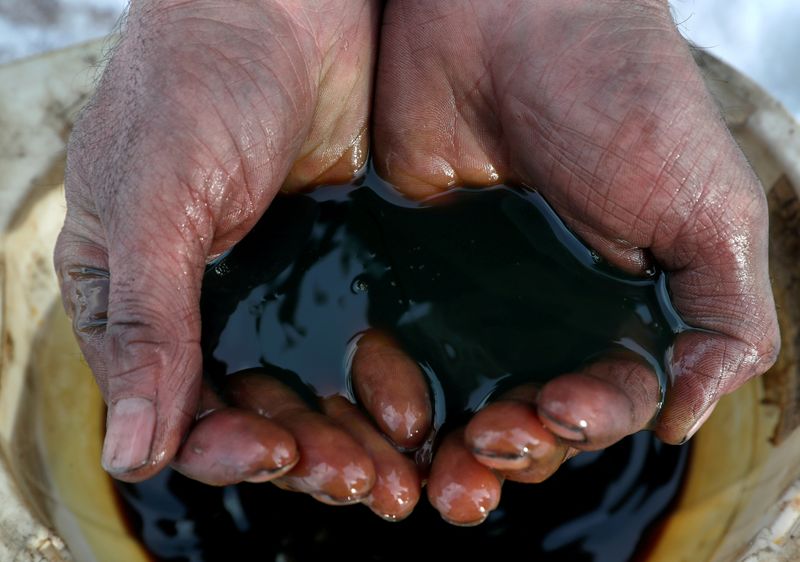By Dmitry Zhdannikov
LONDON (Reuters) - The oil market looks set for at least four months of depressed demand because of China's coronavirus outbreak, with a large crude surplus not expected to clear at least until August, analysts and traders said.
Fears of a virus-related slump in global energy demand have flipped the market into contango this week - a structure in which longer-dated oil futures trade at a premium that encourages traders to keep crude in storage for more profitable resale in the future.
Brent crude has not been in contango since July 2019 . On Tuesday the benchmark was in contango for as much as $0.40 a barrel between prices for closest trading month April and August. For U.S. West Texas Intermediate (WTI) crude the contango between March and July prices was $0.60 a barrel.
The structure of the market has significant implications. Besides encouraging storage of oil, contango also hurts financial investors who have to pay a premium every month they renew a futures contract.
"The virus outbreak might well prove to be a game-changer for 2020," said Tamas Varga at brokerage PVM.
He said it was optimistic to expect 2020 Brent to exceed the 2019 average of $64.16 a barrel while estimates for demand destruction from the virus ranged wildly.
Goldman Sachs (NYSE:GS), meanwhile, said the flip of time spreads into contango is consistent with the physical market suddenly shifting into a large surplus.
'BEAR MARKET'
"While deferred Brent time spreads are too discounted in our view, evidence that Chinese refiners are pushing back on crude shipments and Atlantic loadings points to ongoing weakness for nearby Brent time spreads," Goldman said in a market note.
China has been the main driver of global energy demand growth in recent years and ING Bank said the market is clearly worried that Chinese refinery demand will retreat.
"The issue for the market is if travel restrictions continue for an extended period ... demand loss will become increasingly difficult for the market to swallow," ING said, adding the Organization of the Petroleum Exporting Countries and its allies, known as OPEC+, could come under increasing pressure to cut output by more than laid out in their existing supply pact.
Edward Moya, analyst at broker OANDA, said he expects volatility to remain high and that any sustained rallies are likely to be used by sellers to reduce their positions.

"If OPEC+ delivers anything less than an additional 1 million barrel per day cut, oil could fall further into bear market territory," he said.